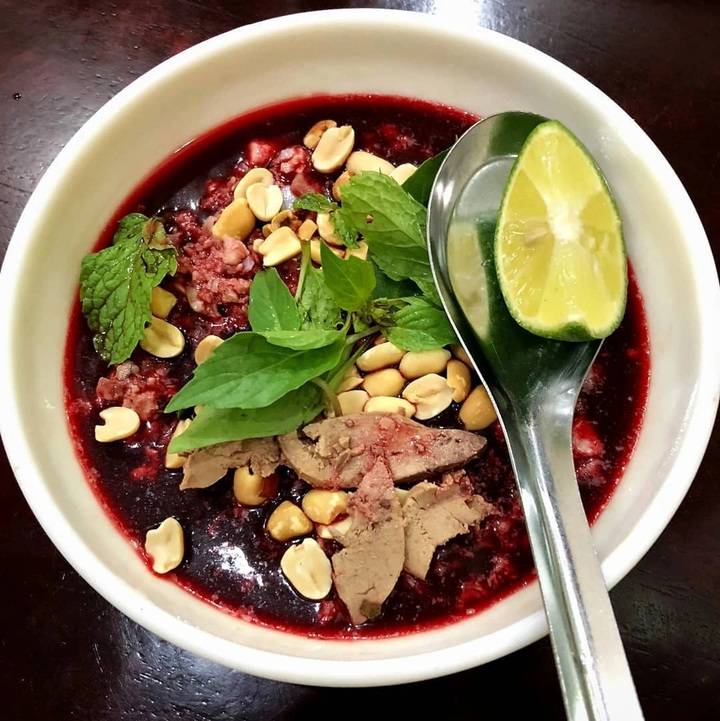
Despite repeated warnings from health experts about the high risk of bacterial infection, tiet canh remains popular in many parts of Vietnam.
Six of 17 people were hospitalised, two of whom died, after consuming tiet canh, a traditional Vietnamese dish made from raw pig blood, the Hung Yen Provincial Department of Health reported on July 16.
The incidents occurred on July 5 and 6, when 17 individuals dined at three eateries located near each other in Quynh An Commune. Later, six men developed unusual symptoms and were admitted to hospitals in Hung Yen and Hanoi. By July 8, two had died.
The deceased were 51 and 55 years old. Both experienced high fever, headaches and digestive issues. The 51-year-old man was admitted to Phu Duc General Hospital with an initial diagnosis of meningitis. Despite being transferred to a higher-level facility for treatment, his condition deteriorated, and he passed away.
The second man was taken to the emergency department of Quynh Phu General Hospital in a coma. His condition worsened, and he also died shortly afterwards.
Among those still receiving treatment, the most severe case involves a 63-year-old man who was hospitalised in a coma with convulsions and required mechanical ventilation. His family reported that he experienced knee pain, fatigue, low blood pressure and nausea about a week after eating the dish. However, his condition did not improve after receiving intravenous fluids.
When admitted to the provincial hospital, the patient was semi-conscious, weak and suffering seizures. He was diagnosed with purulent meningitis and septic coma. He was placed on mechanical ventilation and high-dose antibiotics before being transferred to Bach Mai Hospital in Hanoi on the night of July 11.
According to Hoang Quoc Thai Binh of Bach Mai Hospital, the patient was in severe septic condition upon arrival, with hemorrhagic patches on the skin. A cerebrospinal fluid test confirmed the presence of Streptococcus suis, a pig-borne bacterium. After 36 hours of intensive care and antibiotic treatment, the patient regained consciousness and was removed from the ventilator, surviving the critical phase.
The remaining three patients were in milder condition but showed lingering effects, including hearing loss and blurred vision. All were diagnosed with meningitis caused by Streptococcus suis.
On July 15, the Hung Yen Food Safety Department dispatched two investigative teams to trace the origin of the pigs and meat used at the eateries, collect samples, and verify the supply chain. Authorities suspect the deaths were caused by Streptococcus suis infection.
Streptococcus suis is a zoonotic bacterial infection, primarily transmitted from pigs to humans. There is no confirmed evidence of human-to-human transmission. Most cases are linked to butchering pigs, consuming tiet canh, or eating undercooked pork. Some patients have been infected without direct contact with raw blood or live animals, likely through cuts or abrasions during food preparation.
In severe cases, the infection can escalate quickly into septicemia, toxic shock, vascular collapse, coagulation disorders, hemorrhagic necrosis, organ failure, coma and death.
Tiet canh is a traditional Vietnamese dish made from raw pig blood mixed with salt and served with boiled offal, roasted peanuts and fresh herbs. Despite repeated warnings from health experts about the high risk of bacterial infection, the dish remains popular in many parts of Vietnam.




















